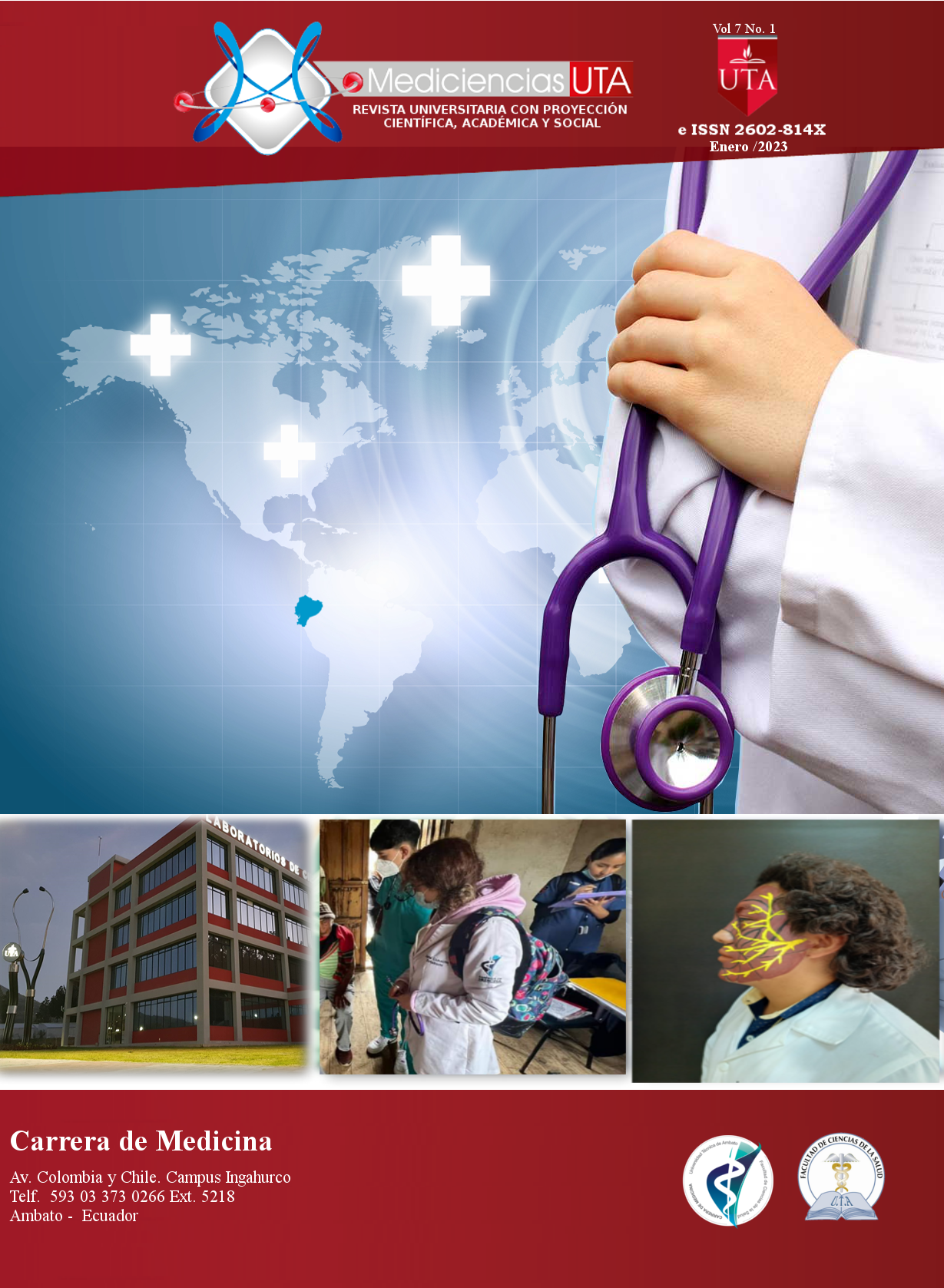Medical simulation approaches to the hybrid patient
DOI:
https://doi.org/10.31243/mdc.uta.v7i1.1923.2023Keywords:
medicine, learning, education, technologyAbstract
Introduction: Medical simulation is one of the tools that projects the medical student in training, modernization, and specialization, in scenarios where they can face situations based on clinical problems or trauma in a phantom of low, medium and high complexity that it approaches a scenario very similar to those that would be faced by subjects in their professional medical practice, reducing the risks of iatrogenic events.
Objectives: Describe the benefits of medical simulation and the hybrid patient approach in health education.
Methodology: A documentary design investigation was carried out, of a descriptive and exploratory nature. Through the search of complete scientific articles, in databases such as SciElo, Pubmed, Google Scholar and LATINDEX, using the descriptors: simulation, health, medicine, learning.
Results: Initially, forty-three writings in English and Spanish were identified on aspects to be investigated, of which, once their summaries were selected and analyzed, they were adapted to 32 articles.
Conclusions: It is concluded that, depending on the complexity of the medical practice, there are phantoms of high or medium complexity that help training and adaptation to the real clinical scenario, but it depends a lot on the commitment of the apprentice and the tutor for the cognitive learning of a skill.
Downloads
Published
Issue
Section
License
Copyright (c) 2023 Mediciencias UTA

This work is licensed under a Creative Commons Attribution-NonCommercial-ShareAlike 4.0 International License.













